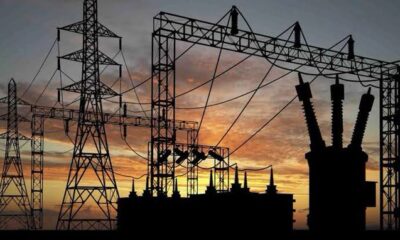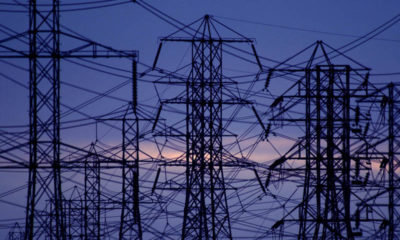Groups Kick Against Increase in Petrol Price, Power Tariff
The Network for Electricity Consumers Advocacy of Nigeria, the Nigerian Hotels Association, the Federation of Tourism Associations of Nigeria, Hotel Owners Forum, Abuja, and Power Up Nigeria have all kicked against the recent increases in power tariff and petrol price.
In a joint press conference held in Abuja on Friday, the groups rejected the increase and demanded an urgent reversal, saying the economic hardship imposed on Nigerians and businesses in the country by the COVID-19 pandemic would worsen if the increases in electricity tariff and petrol remains.
The speech jointly signed by presidents of NHA, FTAN, HOFA, Power Up Nigeria and read by the NECAN Secretary, Uket Obonga, the groups said it was sad that the Federal Government had chosen to compound the suffering of the Nigerian people at a time when the rest of the world are making efforts to ease the impacts of COVID-19 on their citizens.
They said, “It is sad to note that while other nations are enacting policies and taking measures to cushion the hardship imposed on their citizens by the COVID-19 pandemic, the Federal Government has chosen to place an unpardonable burden on Nigerians.
“This burden is not only the electricity tariff increase but also the hike in the pump price of petrol at a time that the people are suffocating under a distressed economy.”
They added, “It is very unfortunate that the Federal Government could allow itself to be misled into believing that tariff increase is the silver bullet that will shoot the sector revenues to Eldorado.”
The groups further stated that the cause of weak revenue in the power sector had not been addressed, neither is the nation’s low internally generated revenue addressed.
According to the groups, this was not the first time power distributors companies were pushing for a tariff increase, but the past Multi Year Tariff Order reviews that ended up increasing the price of electricity did not yield the desired result.
They said, “Recall that as soon as the MYTO 2015 order came into effect on February 1, 2016, the power distribution companies began another quest for further increase.
“They flagrantly disregarded the provisions of the MYTO path and energy charges contained therein, as the Discos went ahead to choose which tariff rate to use in determining bills given to the customers.
The groups argued that the incessant request for tariff increase had become a hypothetical exercise rather than the solution to the sector’s revenue problem.
“We, therefore, wish to state categorically that we reject the September 1, 2020 tariff increase as ordered by the Nigerian Electricity Regulatory Commission,” they said.
They added, “We call on the Federal Government to rescind the increase because we note that there is nothing put on the ground to cushion the effect of the dual increase of the end user tariff and the pump price of petrol.”
Meanwhile, the Nigerian Electricity Regulatory Commission (NERC) has approved power distribution companies (DisCos) to start collecting 87.9 percent of the recently raised electricity tariff from consumers in the first half of 2021.
This was disclosed in the latest tariff review documents forwarded to the 11 power distribution companies in the country. Also, DisCos were approved to start collecting 100 percent of the new tariff from the second half of 2021.



 News3 weeks ago
News3 weeks ago


 Business3 weeks ago
Business3 weeks ago


 Technology3 weeks ago
Technology3 weeks ago
 Investment3 weeks ago
Investment3 weeks ago


 Banking Sector3 weeks ago
Banking Sector3 weeks ago
 Banking Sector3 weeks ago
Banking Sector3 weeks ago
 Appointments3 weeks ago
Appointments3 weeks ago
 Investment3 weeks ago
Investment3 weeks ago

















